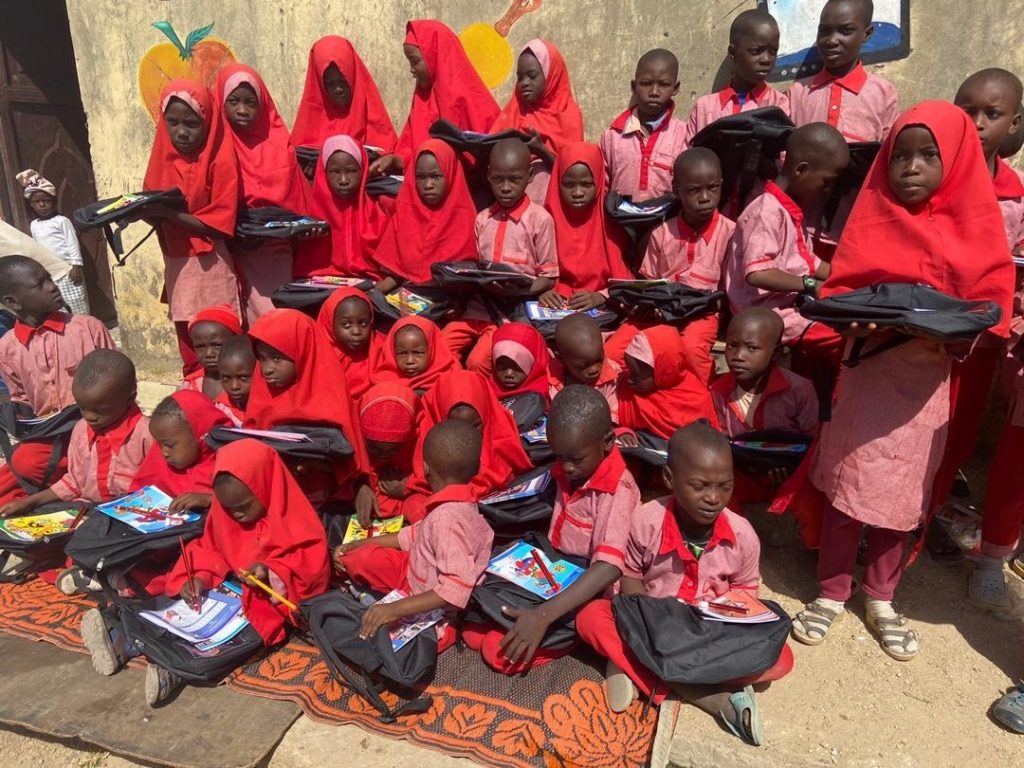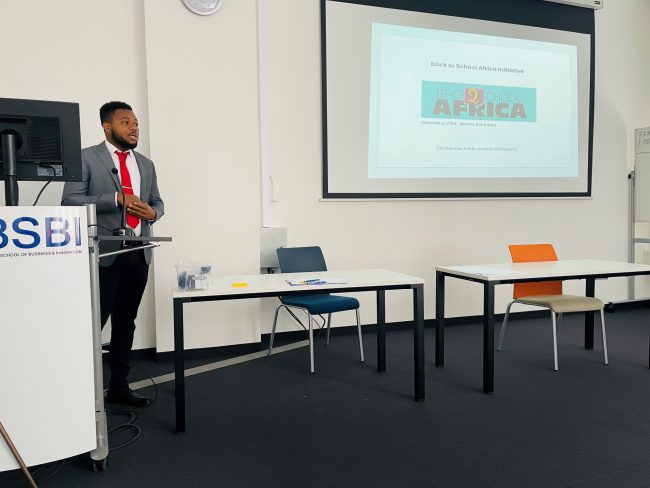Chukwuma Anklin Amadi, a UX designer and the founder of the Back to School Africa Initiative in an exclusive interview with BizWatch Nigeria talked about his journey to Germany, Back to School Africa Initiative, and his goal to reduce the rate of illiteracy in Nigeria.
Chukwuma is an international student and entrepreneur from Imo State in Nigeria. He moved to Germany in September 2019, to study for a MA in International Tourism, Hospitality and Event Management at BSBI hoping to gain knowledge and skills in the sector that would help him pursue his projects.
Kindly tell us about yourself
I’m Chukwuma Anklin Amadi, a UX designer and the founder of the Back to School Africa Initiative. I’m originally from Imo State, but I grew up in Asaba, Delta State. I moved to Germany in 2019 to study for my master’s degree at the Berlin School of Business and Innovation (BSBI).
I am passionate about building the future of Africa. From a very young age, I have witnessed the extent of extreme poverty and retrogression experienced in many remote communities in Nigeria and other parts of Africa. Since then, it has been my utmost desire to actively participate in mitigating these problems.
This dream became a reality in 2018 when I founded the Back to School Africa Initiative, a social impact organisation that is committed to using education as a tool to break the cycle of poverty that exists in these underserved communities.
It is my vision to see that every Nigerian child, irrespective of their social or financial disposition, is given an equal opportunity and the best chance of education, to enable them to achieve their dreams, liberate their communities and ultimately contribute to the growth and development of the African continent.
What is the story behind Back to School Africa?
I started Back to School Africa in 2018 as a pet project during my service year in Calabar. I served in Army Day Secondary School, Calabar, as a history teacher. It was at this time that I gained first-hand experience on how many brilliant children are forced to drop out of school because of the high rate of poverty that is prevalent in their households.
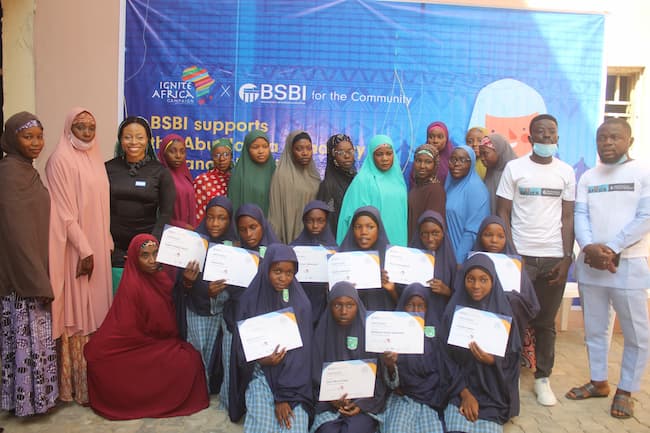
One case that stood out for me was the story of one of my students, her name was Endurance. She was the most brilliant student in my class but had to drop out because her single mother was unable to keep up with the financial responsibility of seeing her through school. Upon further enquiry, I found that at the age of 14, she was about to be married off to a much older man, who would apparently lessen the financial burden on her family.
Endurance’s situation touched me deeply. There was no way I would allow something like that to happen to her under my watch. I quickly reached out to her family and pledged to take over the responsibility of paying her fees for the rest of her secondary education if they would agree to have her return to school. Fortunately, they agreed, and Endurance was returned to school. As promised, I took over taking care of her school fees with my NYSC allowance.
Endurance’s situation touched me deeply. There was no way I would allow something like that to happen to her under my watch. I quickly reached out to her family and pledged to take over the responsibility of paying her fees for the rest of her secondary education if they would agree to have her return to school. Fortunately, they agreed, and Endurance was returned to school. As promised, I took over taking care of her school fees with my NYSC allowance.
While doing this, I found that a lot more children in that school and community faced similar problems and, in most cases, worse. I tried to help as many as I could, but there was only so much I could do with my limited income. I then began to post the success stories of my beneficiaries on social media and reach out to friends to join in.
The response and support were so incredible that before the end of my service year, we had grown to over 20 volunteers and had successfully restored more than 65 children back to school in Calabar. This for me was a very humbling experience. At the same time, I was motivated to keep it up because our impact had turned out to be a source of great joy and fulfilment for me and the volunteers.
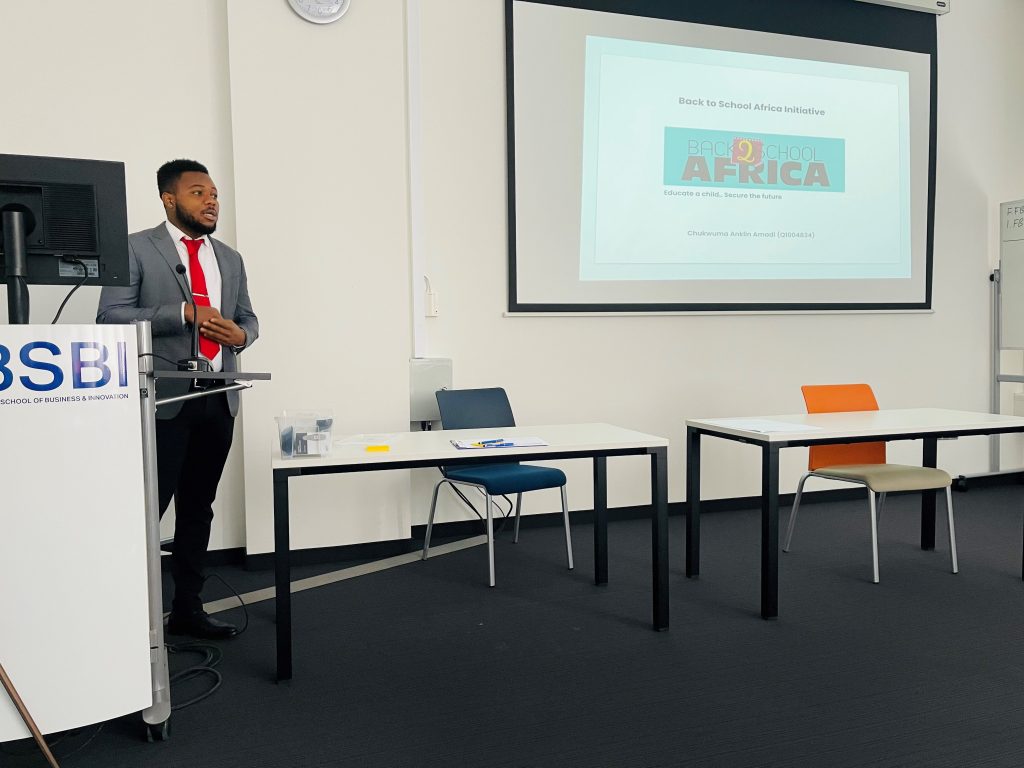
As we continued to grow in number and impact, we decided to take it a step further and registered the project with CAC. Over the past three years, we have experienced exponential growth fueled by an intense passion to build a greater tomorrow for Nigeria and Africa. So far, we have worked with over 400 volunteers, partners and donors from 10 countries to provide educational support to 5,344 children in 26 underserved communities in Nigeria.
What was a pet project, has now grown into a full-scale volunteer-driven organisation.
How has the journey been, from teaching to impacting the lives of children across Africa?
It has been a very fulfilling and rewarding experience. I am very grateful to have chosen this path because nothing else would have been more fulfilling.
As with any other venture, the journey has its ups and downs, mostly downs so far, but I must say that every bit of progress we make is a source of great motivation to keep up the work. I am most grateful for my team. They are the most excellent set of people I’ve ever met, and none of the things we have achieved would have been possible without their effort. In all, it has been a great ride, we love and enjoy every bit of it, and we are excited about the future.
In line with your goal, what policies have you implemented?
Our primary goal is to mobilise resources towards providing access to education and care to less privileged children in Nigeria. This is the foundation for every action we take, especially with regards to formulating and adopting policies.
One of the most important policies that have been crucial for our growth is people engagement. We believe that there are so many people out there who share our passion for liberating Africa from the shackles of poverty and are willing to take drastic actions to cause this liberation. It is our responsibility to find such people and join forces with them. We understand that with a unified vision, comes accelerated impact.
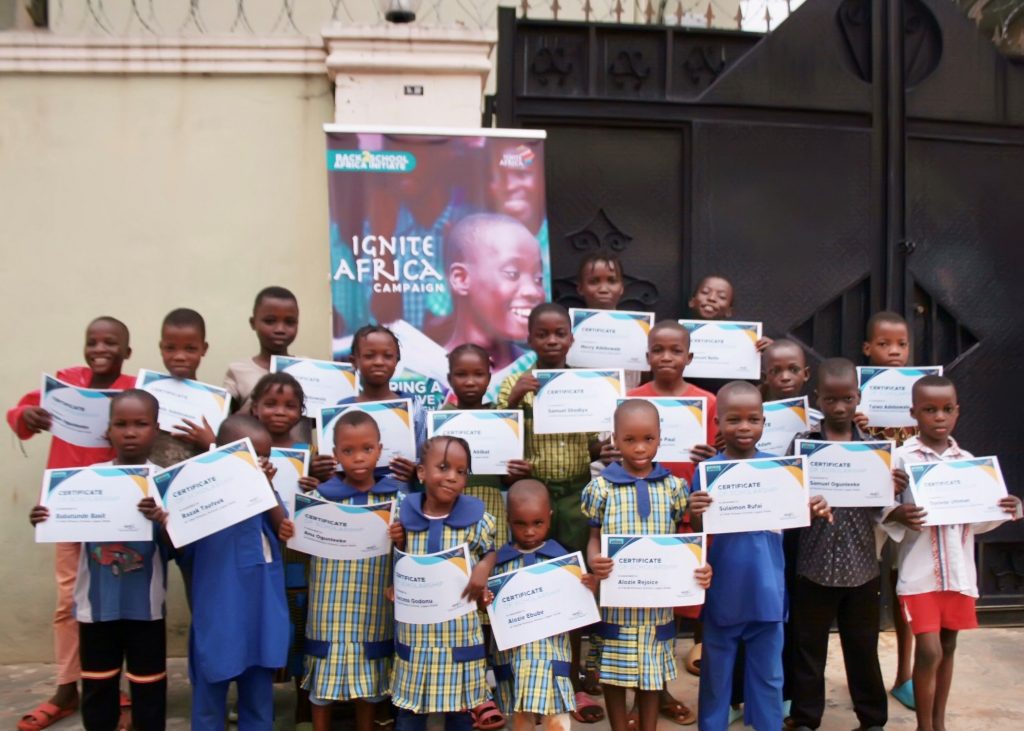
This has been the ideology behind most of our public engagement activities such as the Ignite Africa Jam and the Coffee4edu project. More so, we have implemented such activities in countries where we are passionate about building teams by partnering with international organisations like the Jarumi Children’s Foundation and the Holistique Public Health Organisation, located in the USA and Canada respectively.
How do you manage Back to School Africa from Germany?
Managing Back to School Africa from here hasn’t been an easy task I must say, especially while combining it with studies and work. However, as aforementioned, I have excellent and passionate teammates who make the work a lot easier. We have also built a strong network of volunteers and partners within and outside Nigeria who are working behind the scenes to keep us afloat. Our communities of impact and the beneficiaries have also been amazing. We ensure to carry them along in all of our plans and they never fail to support us all the way. We are one big, happy family.
With the increasing number of out-of-school children, what measures do you think the government in Africa, especially in Nigeria can do to mitigate the problem?
Honestly, the fact that the Nigerian government is not paying adequate attention to the education sector is hard to believe. The future of every great nation is dependent on the quality of education it invests in its people. Nigeria currently has well over 10 million out-of-school children – the highest in the world – and with a growth rate of 2.6%, Nigeria’s population is expected to reach 400 million by 2050, with more than 60% of this population under the age of 18.
Imagine what the reality would be of this nation by then if nothing is done about its current state of education. It is certainly a matter of urgency that Nigeria and other African nations rise to the occasion and begin to take decisive actions in ensuring that the rights of African children are delivered.
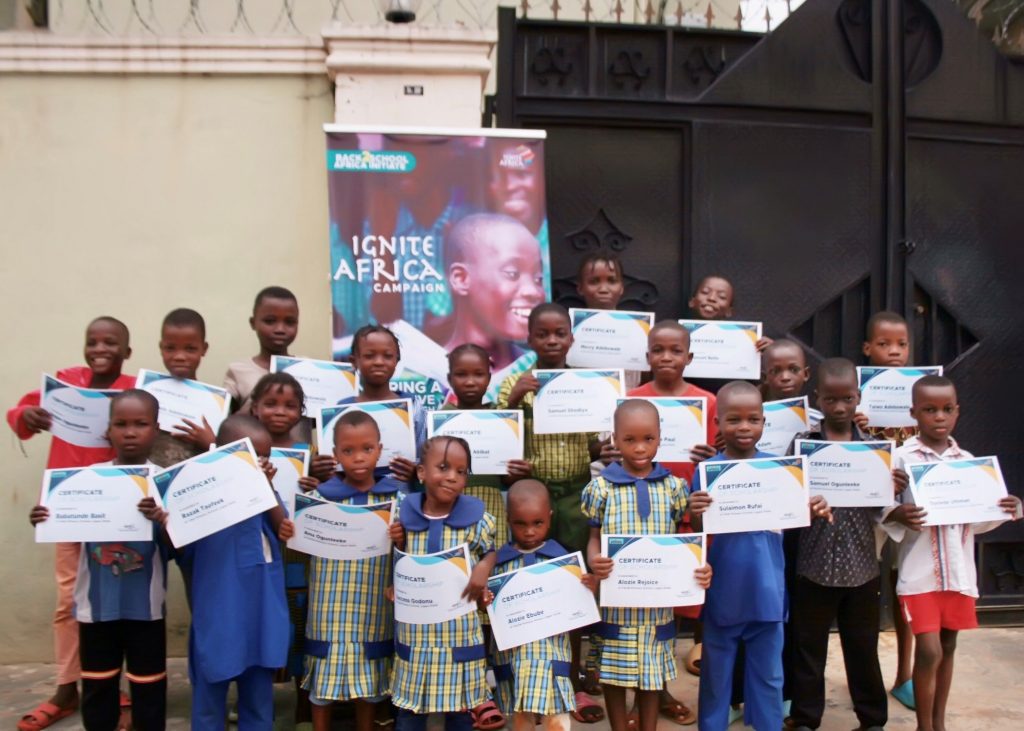
The government must adopt policies that address the issue of poverty, which is in fact the primary cause of child illiteracy in Nigeria. Many households in the communities where we have worked have no means of livelihood and can’t even afford to feed their children let alone pay their school fees. It is important that the government implements a free primary and secondary education system across all the states.
This will go a long way in mitigating the problem. Also, we must begin to pay attention to the deplorable state of government schools across the vast majority of Nigerian States. It is not enough to just get kids back to school, what facilities are they going back to? How trained are the teachers?
What is the quality of the academic curriculum and how relevant is it in today’s world? These are critical questions that we must answer to show our readiness to reform the African education system and build a better tomorrow for the upcoming generations.
Have you worked with other organisations/educational bodies to advance the level of education in Africa?
Yes, we have had the opportunity to work with several organisations that share our vision. Notably, our recent collaboration with the Berlin School of Business and Innovation (BSBI) to provide scholarships to out-of-school children in Kano State.
BSBI is a business school in Berlin where I studied for my master’s degree. In the course of my studies, I participated in a business pitch competition organised by the school for student entrepreneurs. It was in this process that the school learnt about my work at Back to School Africa and decided to support it.
I am very proud to have chosen BSBI for my master’s degree studies because beyond academic excellence, it has shown that it is an institution that not only pushes its students to achieve their dreams but is passionate about global sustainable development.
We have also partnered with Airfunding, a Japan-based crowdfunding platform owned by Kihetai Inc. Airfunding has been very supportive in terms of advancing our fundraising efforts globally and giving us immense publicity in Japan and the rest of Asia. Other partners include the Nudge Global Impact Challenge (Amsterdam), e-Bloom Academy (Berlin), Jarumi Children’s Foundation (Minnesota), LA MAISON (Berlin), TCK Zone (Lagos), Holistique Public Healthcare (Ontario), and more.
